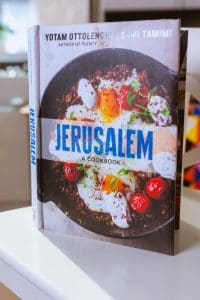August 9, 2019 by admin
Get a Free Quote
Our Accreditations





Recent Updates
Buckets and spoons: an etymological tour of death metaphors
The need to translate English into English is more common than you might imagine, where phrases of English are deployed in a foreign language and have taken on an alternative meaning that isn’t appropriate in actual English text. Read More

Over the years I have translated a number of cookery books and back in 2017 I wrote about some of the challenges involved in this area. My most recent immersion in the world of food and recipe translation prompted me to reflect again on how subject-area expertise is crucial for producing text that sounds completely authentic in this specialist translation area.
Dictionaries are fantastic resources for tracking down obscure vocabulary, but they won’t necessarily help you choose the right term unless you have a good feel for the relevant subject area. For instance, where a recipe specifies “2 Stängel Minze”, a dictionary search for “Stängel” might give you stem or stalk or more unusual options such as petiole or stipe. The first two are perfectly acceptable in many contexts, the latter refer to very specific botanical features. None of the dictionaries I consulted came up with sprig, which in my view is the most suitable choice in this culinary context.
Indeed context is everything. Shortly after deciding on sprig for “Stängel”, I came across the following phrase “Die Minze samt Stängel grob hacken”. Here sprig doesn’t work at all – the important thing to capture in this phrase is that you are chopping the mint including the stalk as well as the leaves. So for this phrase I opted for “Roughly chop the mint including the stalk”.
English isn’t alone is such subtleties. German seems to prefer “Zweige” as the quantity descriptor for rosemary and thyme “2 Zweige Rosmarin”, “2 Zweige Thymian”, while “Stängel” is used for mint and lemon balm “2 Stängel Zitronenmelisse”.
You need to be well-versed in (British) English ingredient terminology to know that “Nelkenpulver” should be ground cloves (rather than clove powder), whereas “Senfpulver” is mustard powder (and not ground mustard). And when translating in the other direction you need to know that coriander is more likely to be “gemahlener Koriander” rather than “Korianderpulver”.
The instruction to melt chocolate “Schokolade schmelzen” is pretty straightforward, but when the chocolate is being melted in a liquid (e.g. in coffee, milk or some alcohol) German may use the verb “auflösen”. A dictionary search for this term might suggest dissolve, dissipate, liquidate, break up, dismantle, disperse. But an English recipe writer would almost certainly stick with melt even when the process involves an additional liquid.
Finally, a dictionary will probably give you good options for “Teig” as long as you have the sense to use dough for breads, pastry for … well … pastries, and batter when referring to pancakes. But none of the dictionaries I looked at suggested an appropriate official translation for “Teig” when used in the context of baking a cake. In English the combination of butter, sugar, eggs and flour is generally referred to simply as the “cake mix”, certainly no self-respecting baking expert would ever refer to “cake dough”.
Previous Rosetta Translation blogs on this subject:
https://www.rosettatranslation.com/translating-recipes-part-1/
https://www.rosettatranslation.com/translating-recipes-part-2/
https://www.rosettatranslation.com/translating-recipes-part-3/
Get a Free Quote
© 2024 All Rights Reserved
Rosetta Translation, 133 Whitechapel High St, London E1 7QA · 0207 248 2905
Comments
Add Comment